This post may be sponsored or contain affiliate links. All opinions remain our own.(Full disclosure)

Ketogenic diets around the world have been known to be extremely effective in helping improve health and lose weight fast.
The diet takes into account and addresses the underlying causes of your weight gain, which could include things such as hormonal imbalances.
With the ketogenic diet, you are forcing the body to go into ketosis by restricting your net carb intake to under 50 grams a day.
With the number of restricted carbs, your body needs to reset its way of getting the fuel that it needs.
See how a diet high in healthy fats can help improve insulin resistance by changing the body’s preferred fuel source from glucose to ketones.
What is Insulin and Insulin Resistance
Insulin is a fat-storing hormone formed by the pancreas that enables your body to manage glucose and sugars from carbs within the food.
It prevents blood sugar levels from hyperglycemia or reaching too high or hyperglycemia, which is too low.
Insulin resistance has many symptoms including sugar cravings, weight gain, high blood pressure, high cholesterol.(1)
Insulin resistance is also linked to type 2 diabetes. Therefore, cutting out or reducing sugar in your meal planning will help prevent becoming diabetic.
The worrying thing about insulin resistance is symptoms take a long time to appear.
When symptoms surface, such as weight gain, multiple other problems may creep up.
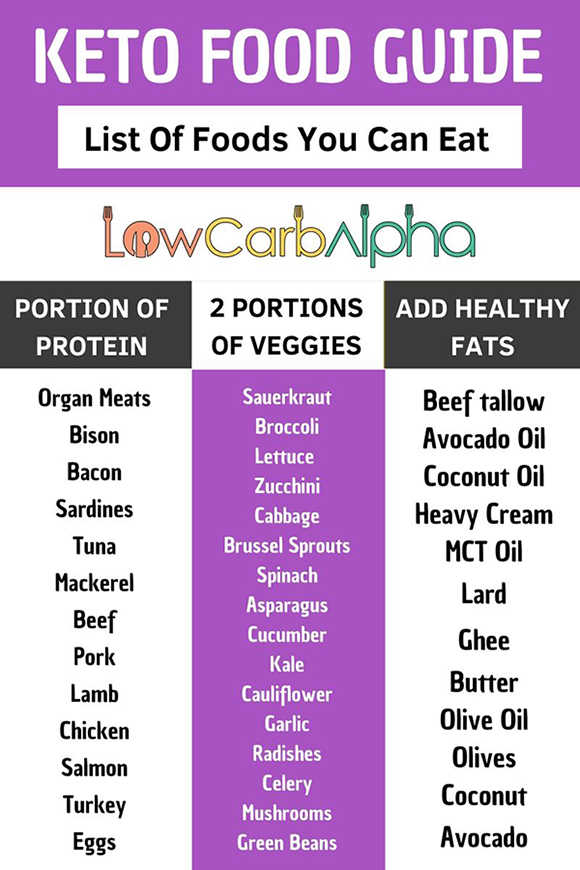
Why You Gain Weight
Insulin in your body helps to regulate your blood sugar levels. Blood sugar also referred to as glucose is the primary fuel in the body for energy and brain function.
When blood sugar rises, the insulin your pancreas releases move the glucose into your bloodstream. If there is glucose in your system, your body will burn it first for fuel.
If your body is already filled with higher glucose levels, more cannot be broken down for fuel.
So because of this, your body stores these excess levels as fat.
Having high levels of insulin can lead to developing type 2 diabetes.
Some quick diabetes facts are it affects 25.8 million people or 8.3% of the U.S. population with 7 million people undiagnosed.(2)(3)
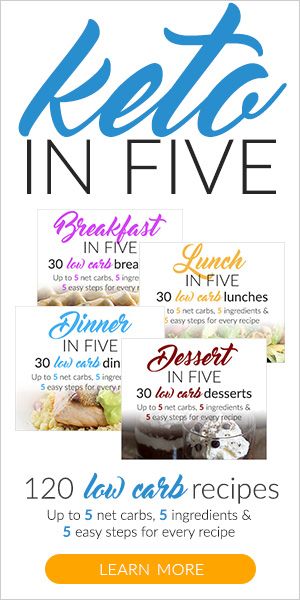
What Makes Insulin Levels Rise?
The short answer to this question is higher levels of carbohydrate consumption.
Carbohydrates are used by the body and broken down in your gut. This then turns them into blood sugar.
Since complex or simple carb both convert into blood sugar, it doesn’t matter the type you eat.
When you consume excess sugar with your meals, your body releases more insulin.
So essentially, if you eat high levels of carbs, the body must release a ton of insulin to compensate for this.
Modifying your nutrition and eating a healthy high fat diet can help fix the problem by limiting the number of sugars you consume.
With the ketogenic diet plan, you limit your carb consumption to help decrease the amount of insulin your body needs.
With a lack of carbohydrates for energy, your body will start to burn stored fat levels and ultimately ketones for fuel, helping you to lose weight in the process.
Ketogenic Diet Plan
When starting a ketogenic diet nutrition plan, you will want to start by limiting the number of net carbs you eat to under 50 grams a day to reach ketosis.
In doing this, it’s a good idea to choose low carb healthier carbs over the starchier and sugar-filled carbs.
Vegetables and keto-friendly fruits are great choices.
Green leafy and bitter low-glycemic vegetables are healthful, wholesome sources of carbs.
In addition to the carb reduction, you may want to decrease the amount of protein you consume as well. It will depend on how well you can adjust to a high-fat diet.
Many people often increase protein intake and end up making it more of an Atkins or typical low carb diet. Eating fatty foods helps combat this issue.
Eating darker meats that contain more fish oil is a great beginning part. These include salmon, lean beef, and lamb.
Once you’ve made a few lifestyle choices and changes you will be amazed just how fast the pounds start to fall off with a ketogenic diet weight loss plan.
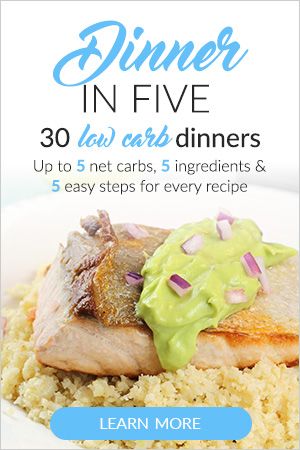
How to Know If You Have Insulin Resistance?
See you’re GP or health-care professional, and they can take blood tests, a detailed history, and performing a physical examination to see if you have insulin resistance.
Fasting blood glucose and insulin levels are normally enough to establish whether you are pre-diabetic, have diabetes or insulin resistance.
If you find out you have symptoms, then you can manage it primarily with more exercise, better low sugar diet plan, nutrition, and other lifestyle changes.
Using a Ketogenic Diet to Improve Insulin Resistance
Insulin resistance is linked to fatty liver and colorectal cancer, carb dependence, periodontal disease, high blood sugar, and blood pressure.(4)(5)
The more carbs you eat, the more it will release insulin. Restricting net carbs to 20g-50g by essentially eating fatty foods will help improve insulin levels.
It will also help raise good cholesterol and reduce the risk of heart disease by stabilizing blood sugar whereas a high carb diet will increase risk.(6)
Studies show a ketogenic diet can assist with raising good cholesterol (HDL-C) and aid weight loss.
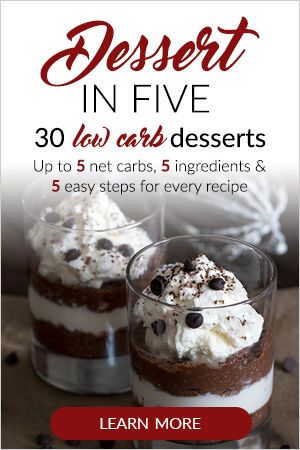
Comparing keto to a low-fat weight-loss diet, a very low-carbohydrate diet did not lower LDL-C but prevents the decline in HDL-C.
It also results in improved insulin sensitivity in overweight and obese people.(7)
Anyone can benefit from lowering sugar intake and increasing healthy foods. If you have symptoms of insulin resistance or concerned about your blood sugar, don’t delay and make an appointment with your doctor.
If you have any questions regarding low carb or keto dieting, please leave comments below.



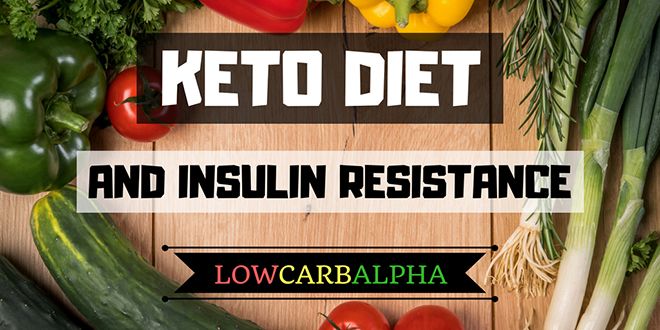


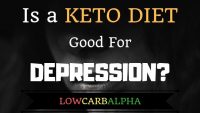
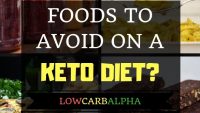
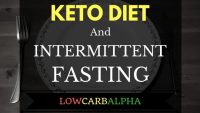

I have been on a under 20g carb no sugar lots of exercise for 2 1/2 months. I’m so frustrated
I can’t loose any weight. I go down 2 up 1, down 1 up 2 just about to give up and go back to
counting calories. I don’t want to I don’t seem to have a hard time staying on this diet, but
it’s not working. I’ve read everything Ican get my hands on, and have tried eating more fat
Less protein etc. I need help to figure this out driving me crazy. Please help!
Hi Marsha, Well done for following a strict keto lifestyle with ease.
You may simply be eating too many calories. A good thing to practice is weighing out all your meals, so you have an idea if you are going over your macros for the day.
You could also try a variation of a keto diet or maybe a 5:2 eating plan where two days of the week you have only a 500 calorie keto meal.
Trying this will undoubtedly reduce your total calorie intake for the week to help weight loss.
Hi. My name is Christy and I am a carb addict. Insulin resistant high blood sugar but not diabetic. I started Keto. I do not have good or bad cholesterol. I am learning not to eat carbs or graze all day cos I am always hungry and never hungry. I meet my caloric needs and was wondering. Will I probably take longer to lose fat because I have so much carby stuff in me from before? Excess glycowhatevers and sugar in y blood. Am I in detox?even if I do not eat 1500 cal, do obese people with high blood sugar get less results?
Hi Christy. In general, it will take a little a bit longer to lose body fat if you are eating a higher carb diet but faster with a keto plan.
After reducing carbs and shifting to ketosis, you will have depleted your glycogen and sugar in your body. You will experience various detox symptoms from carb withdrawal.
Obese people with high blood sugar should get quick results if following a strict keto diet. It would be a massive change to the body.